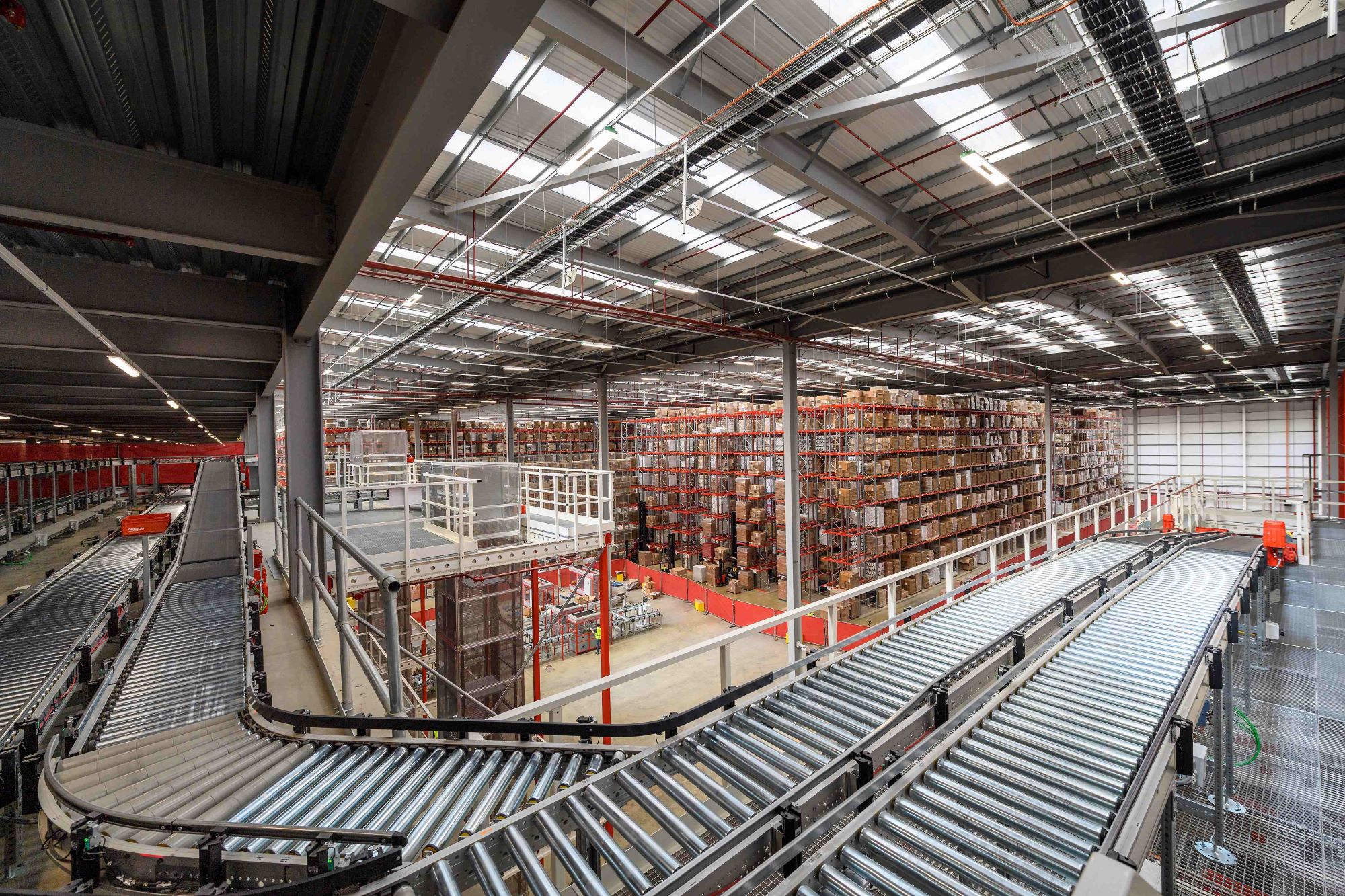Staying in Control During Peak Season

Notwithstanding continued economic challenges, there was a rise in consumer spending across the period which, supported by figures from Retail Economics, accounted for £202bn worth of global sales online and a 3.7 per cent increase in the UK. This is certainly modest compared to the “peaks” in previous years, due to current economic challenges. However, specialist 3PL provider Europa Warehouse still experienced a 45 per cent increase in total orders picked in December 2023 (compared to the month of October, preceding peak season), at the height of the peak season – its most efficient ever.
Even modest growth in order volumes can cause pressure for retail and ecommerce businesses everywhere, who must cost-effectively scale up and down at pace, whilst delivering an efficient service with no deterioration in order fulfilment accuracy. Here, Dionne Redpath, Chief Operating Officer and Head of Warehouse for Europa Worldwide Group, discusses how easing the peak season pressure for retailers, helps maximise sales and drives brand loyalty.
Addressing customer pain points
Many businesses seeking 3PL services want to know how they can achieve those core objectives during peak season without having to make costly capital investments. For many big retail or ecommerce companies, the answer to addressing this pain point is to adopt automated technology – something that is becoming more common place in the UK as technological solutions advance.
However, despite the upfront costs of automation falling in recent years according to an article in the Financial Times, it’s still a huge capital investment for any size of business to make, often they’re asked to sign up to lengthy, costly contracts with 3PL providers to access that type of solution. Alternatively, Businesses who don’t have the resource or desire to do that face upsetting their own status quo in peak: the extra demand and volatility could easily lead to costly mispicks, delays to dispatch and higher return rates.
This is where shared-user automation can really help ecommerce and retail brands. For the brands operating in a shared-user system, peak season needn’t feel like peak at all.
When peak season doesn’t feel like peak
Europa’s shared-user automation system is designed for products that can be stored in totes, which Europa refer to as ‘toteable’ – ideal for clients who operate large numbers of SKUs and volatile order profiles and need to scale up and down at pace, especially important during peak season.
The system uses a ‘tote’ to transport products through the automation process, from the moment the product is inducted into the system to the point of order completion and dispatch. Each product is assigned to a tote or location within a tote and programmed into the system, recording valuable information relating to the products’ attributes and transported into a secure, caged storage area, capable of holding up to 36,000 totes.
When demand for an order is placed on the system, the products required to fulfil the order, in this case anything from small cosmetics, industrial components to wine and beer – along with the order carton are simultaneously sent to a picking station where the fulfilment takes place. The completed order is transported for any finishing touches such as gift tags, inserts or promotional items, before being sealed, the shipping label applied, and the item being dispatched.
To further remove complexity, shared-user automation has robust quality control measures to prevent picking errors, thus reducing the need for costly returns, demand on customer service resource and revenue-zapping replacements. The system can be quickly scaled up or down to meet fluctuating demand, which allows for accurate financial modelling due to the high level of predictability afforded by operating such a system. For peak planning, this is crucial to ensure a seamless supply chain whilst not blowing budgets.
Forecasting is planned well ahead of the Christmas peak season, starting in May and being locked in by early September. This advanced planning process allows all parties to prepare ahead of time in order to assure success and is a core component in the delivery of very successful peak season – in this case, the picking of more than 78 million units in peak season 2023 across Europa’s portfolio of three warehouses.
Keeping Up with Cashflow
Shared-user systems are certainly providing an opportunity for Brands to maximise sales opportunities in a very low-fuss way. However, this isn’t the only way 3PL providers can help ecommerce, retail and wholesale brands who wish to tightly manage cashflows.
For many brands, particularly those whose products originate from outside the UK, customs duty and VAT is paid at the point of entry into the country and can mean a Business is outlaying unnecessary cash to facilitate sales well in advance of any sale having been realised. In contrast and utilising Europa’s bonded facilities and processes, brands can store their goods under HMRC accredited wet or dry bond, meaning that all duties and taxes on goods – including alcohol – are deferred until a product is sold and dispatched.
Naturally this offers a significant advantage because goods can be stored ahead of seasonal peaks without brands footing heavy duty costs immediately. Europa Warehouse holds HMRC wet and dry bond accreditation across all three of its warehouses in Corby, Dartford and Birmingham.
So, even in the current climate where consumers are spending less online and instore than previous years, it’s important that ecommerce, retail and wholesale brands have the opportunity to optimise resources, simplify operational models and capitalise on the sales and growth opportunities afforded by the peak season. Europa’s focus has been to enable customers to meet or exceed their sales targets, allowing them to maximise revenues whilst ensuring exceptionally high levels of quality and satisfaction.
Transport & Logistics – Driving The Industry Forward